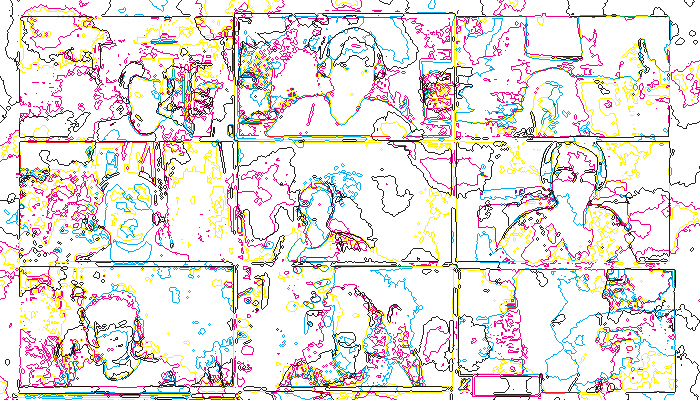
The EGU Programme committee (PC) usually meets several times in a year to prepare the EGU General Assembly (GA). In these “virtual” times, they have met even more than usual, as more issues have to be discussed and reflected upon: hybrid format, accessibility, fees and registration rates, travel support, education, outreach, communication, side events, etc.
The PC meeting dedicated to finalize the scientific programme for the GA2022 took place mid-October, with the challenging task to organize all the proposed disciplinary (22 divisions) and Inter- and Transdisciplinary (ITS) sessions. The Hydrological Sciences division (HS) received more than 100 session proposals and around 100 co-organizations requests from other divisions. HS president and subdivision chairs worked hard to offer a coherent and interesting programme to the community. At the end, 123 sessions are displayed in the programme online for the call for abstracts, together with 4 ITS sessions and around 40 co-organized sessions that are led by other EGU divisions..
As you certainly have noticed, the call-for-abstracts has been issued (see here), and is open until 12 January 2022. It is thus time now to visit the programme and its list of sessions to find the right place where you would like to present your work. As in previous years, there are rules and guidelines for abstract submission (details here). Only 2022 EGU members will be able to submit an abstract as first author, so it is time now to renew your EGU membership for 2022. Also, to facilitate the widest possible participation in EGU22 for all, there are two participation support schemes that can help you: the Roland Schlich travel support for in-person participants and a registration-fee waiver scheme for virtual participants. Check eligibility here and, if you apply, submit an abstract by 1 December 2021.
During the PC meeting, it was highlighted that, for the time being, we will continue towards preparing a hybrid EGU GA2022 (components on-site and online). The current Austrian regulations require that people show a full vaccination pass (with vaccines approved by the European agency only) for meetings of more than 500 people. Therefore, if rules remain as per today, non-vaccinated people will have to attend online only. The center in Vienna has not yet opened for the public (or rather it is currently used as vaccination center), but they foresee to open again early next year.
It is always difficult to prepare ourselves in advance during these times of uncertainty, but EGU is following closely the situation. An important piece of information has been released for the members:
If you plan on participating virtually, you should submit your abstract to a vPICO session, since the oral/poster sessions will not provide the possibility for virtual presentation. If you plan on attending in-person in Vienna, feel free to submit to any session, vPICO as well as oral/poster sessions.
Let’s keep our fingers crossed and, for now, let’s have a more detailed look at the HS Division scientific programme:
- First, you will find sessions numbered according to our subdivisions; HS1 to HS10. They are our main sessions and cover a wide range of topics, from measuring to modelling, forecasting extremes and managing water resources in hydrology. The programme was carefully prepared by the HS president, vice-president and subdivision chairs. New this year is a group of sessions put together under the umbrella “Hydrological Sciences for Policy and Society”. This is a growing topic in our community and this new subgroup opens up the opportunity to have more in-depth discussions about the interactions between hydrological and other (political, social) sciences.
- In addition to the subdivision sessions, we also have a list of 10 short courses (SC) of particular interest to hydrology. Special thanks to the HS Early Career Scientist representatives for having organized the list for us (thanks to Sina and Elena!). The list is just a small picture of all the SC that will be organized (see full list here).
- You will find also a collection of Inter- and Transdisciplinary Sessions (ITS) related to hydrological sciences; these are sessions submitted to the ITS division that specifically asked to be co-organized by HS, as main topic-related division. This year, these ITS sessions invite specific contributions that explore the Earth’s digital twin concept, Participatory citizen science, Artificial intelligence for natural disaster risk management and Ecosystem services assessment.
- In the programme, the ITS sessions are followed by a group of ‘Further sessions of interest to Hydrological Sciences’. This part of the programme (HS13) contains sessions that are organized by other EGU divisions and that have a direct interest for us in Hydrological sciences, while being complementary to what is already listed in the programme of the HS subdivisions (HS1 to HS10).
With a call-for-abstracts programme as the one that we have this year, we usually end up with about 100 sessions taking place (that was more or less the limit of slots in the rooms in Vienna, back in the pre-pandemic days). Accordingly, we might expect that some sessions will have to merge to fit in the slots available for a full week of science, from morning to evening, in April 2022. This merging process is entirely taken care of by the subdivision chairs and the HS president once the call-for-abstracts is closed, in collaboration, of course, with the conveners (our Big Thanks here also to all conveners and co-conveners who actively shape our GA!).
And finally, do not forget to follows us also on Twitter: https://twitter.com/EGU_HS. We have recently exceeded 6,000 followers, and we’ll keep you all updated for the #EGU22 there!
